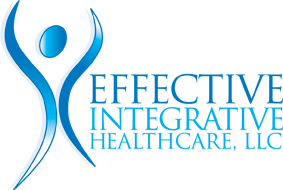Frequently Asked Questions about Whiplash

Whiplash is a common neck injury that occurs when the head snaps back and forth. Recovering from whiplash can be very uncomfortable, but receiving proper care can speed up the process. Find out more about this acute injury to help you diagnose and treat it.
What causes whiplash?
Car accidents are the most well-known cause of whiplash, but there are many other ways to sustain this neck injury, such as playing high-impact sports, falling and hitting your head, or being punched or shaken. In short, any impact or blow that causes your head to jerk backward or forward can strain the muscles and tendons in your neck and cause whiplash.
How do I know if I have whiplash?
Sometimes, pain from a strained neck is immediate, while other times it takes hours or even days for your neck to hurt. You might have whiplash if you notice these signs:
- Neck tightness and decreased range of motion
- Pain and stiffness when moving your head
- Headaches at the base of your skull that radiate to the forehead
- Tenderness in the neck, shoulders, arms, or upper back
- Numbness or tingling in the arms
- Jaw pain
- Muscle spasms
- Dizziness
- Fatigue
What treatments are available for whiplash?
The good news is whiplash usually heals on its own. Reduce discomfort and prevent further injury by resting and immobilizing your neck, icing your neck, applying moist heat once the swelling has gone down, taking pain medication, and gently stretching your neck. You can also speed up your recovery by receiving chiropractic care, physical therapy, massage, and/or acupuncture treatment.
How long does it take to recover from whiplash?
While recovery time depends on the severity of your injury and what treatments you pursue, many cases resolve within a few days to a few weeks. Don’t rush things—if you attempt to resume your usual activities too quickly, you could reinjure your neck and risk this acute injury turning into a chronic problem.
What are the complications of untreated whiplash?
Not all whiplash injuries heal completely. Some cause complications for months or even years down the road. It’s difficult to predict when an acute neck injury could turn into chronic pain and permanent injury, but the risk of complication goes up if you’re an older adult, have existing back or neck pain, or sustain a severe or repeat injury.
When should I see a chiropractor for whiplash treatment?
It’s recommended that you receive a medical evaluation if you experience any pain after a car accident, sports injury, or other neck trauma. You might get the all-clear and receive advice to simply take it easy until your neck heals. However, if your injury is more serious, prompt medical care can help you recover faster and decrease the risk of having long-term complications from untreated whiplash.
Think you might have a neck injury? To schedule whiplash treatment in Crofton, Millersville, or Lanham, MD, please contact Effective Integrative Healthcare today.
